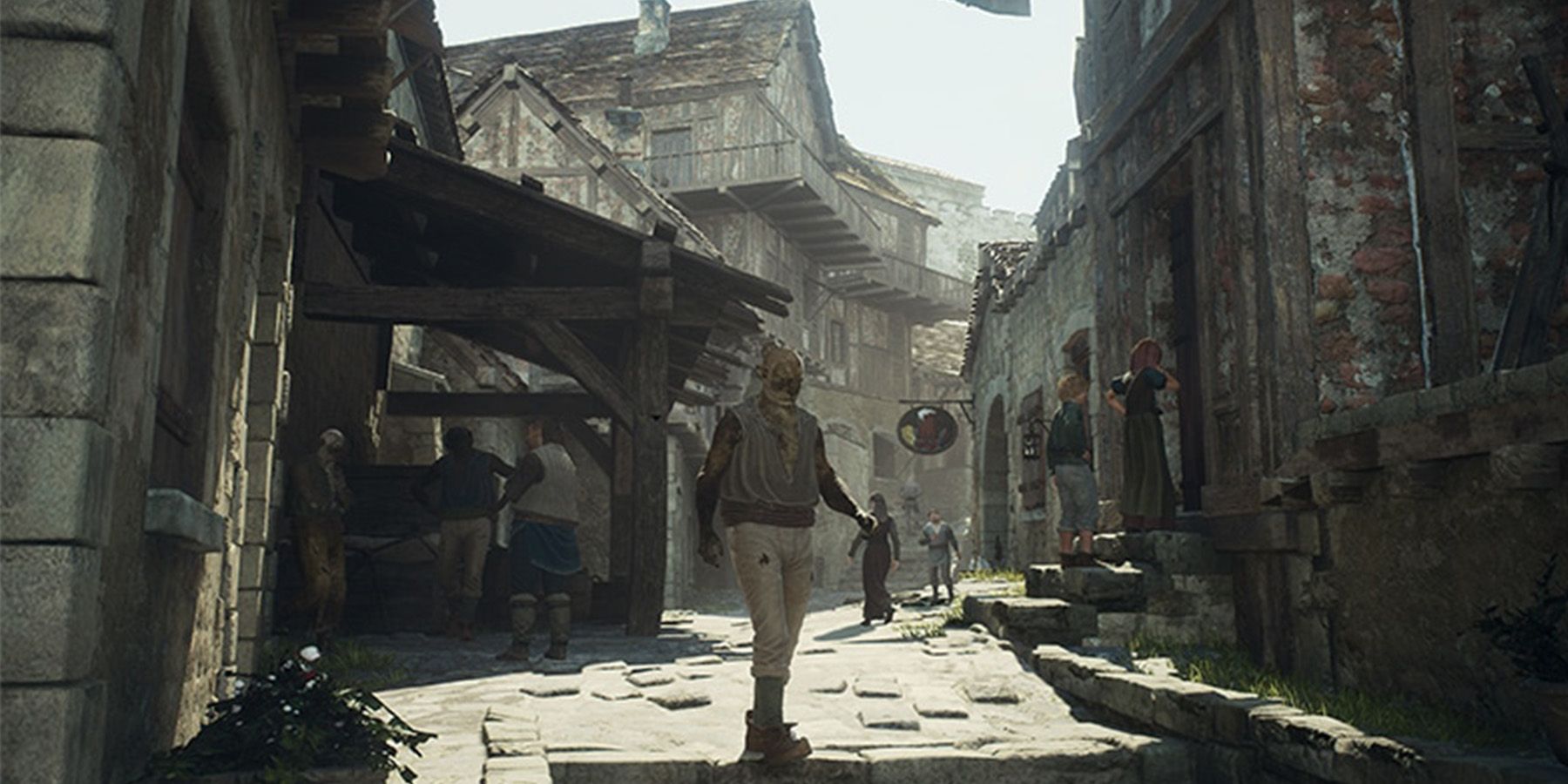Highlights
- Players must actively seek out quests in Dragon's Dogma 2, creating a more immersive experience in the game world.
- Interaction with NPCs is essential to picking up quests, adding depth and meaning to the player's objectives.
- Exploration is key in finding quest-givers and objectives in Dragon's Dogma 2, deviating from traditional RPG quest systems.
Just like with every single RPG before it, Dragon's Dogma 2 is filled to the brim with quests waiting to be completed. Villages need saving, supplies need to be gathered, creatures need to be killed, and sometimes even people need to be escorted across the world. Fans of the genre know all of this too well at this point. However, genre veterans may not be prepared for just how Dragon's Dogma 2 shakes up that gameplay loop.
In other RPGs, players often just head into towns and accept an assortment of quests from a job board. If not through a jobs board, then they must look around for giant exclamation points. In Dragon's Dogma 2, neither of those exists, and instead, players must explore their surroundings if they want to find something to do. This not only incentivizes them to explore the world but also gives them a far greater connection to the quests that they are undertaking. And while that approach may sound risky, it pays off immensely for Dragon's Dogma 2.

Dragon's Dogma 2 May Be a Ray of Hope for Another Dormant Capcom IP
Capcom's commitment to franchises like Dragon's Dogma might be a good omen for another IP missing from the company's current-gen lineup.
Dragon's Dogma 2 Changes the Way Quests Are Found for the Better
Dragon's Dogma 2 Forces Players to Explore Every Single Corner
When players enter a city in Dragon's Dogma 2, they are not greeted by an overwhelming number of quest markers. There are no NPCs with giant exclamation points, there are no dots on the minimap, and there is no board in the center of town littered with various job postings. Instead, players have to actually discover these quests for themselves by simply walking through the streets.
To obtain quests in Dragon's Dogma 2, players must either approach random NPCs or be approached by them. There is no clear indication of who needs help, so players have to keep their eye out for anyone who looks concerned. Sometimes, they can sleuth out a quest by simply listening to the mutterings of the random NPCs, and other times, those NPCs will just start up conversations themselves. Then, players can either accept or reject the task and head off to find just where those NPCs want them to go.
Players Now Have a Real Connection With Their Quest-Givers
This approach to quests is quite different from what seems to be the RPG standard. Genre veterans have likely gotten extremely used to just accepting quests from a job board, following the waypoints, and then finishing them. Then, they often turn them back in to quest-givers they have never met, a faceless job board, or are just given the rewards without any more prompts. In Dragon's Dogma 2, players are forced to talk to people, which helps them form a bit of a connection with the quests they are trying to accomplish.
With this approach, players are no longer accepting quests from faceless Dragon's Dogma 2 NPCs that they may never meet. Instead, they have to actually search out and meet practically every quest-giver if they want to do anything in this world. That may sound a bit annoying for some, but through this approach, these quests feel a lot more meaningful. Because now, players know who they are protecting or getting things from, which can also help make that core loop a bit more engaging.
Along with that, these quests force players to search for the objective. They must listen to the quest clues if they want to know where to go unless one of Dragon Dogma 2's Pawns or the quest-giver is able to lead them to the exact location. Couple that with the lack of a job board, and these quests feel like a step above many RPGs. While it may still ultimately result in the same type of adventure, the way players must go about it feels extremely different, which makes for a wildly unique experience overall.




